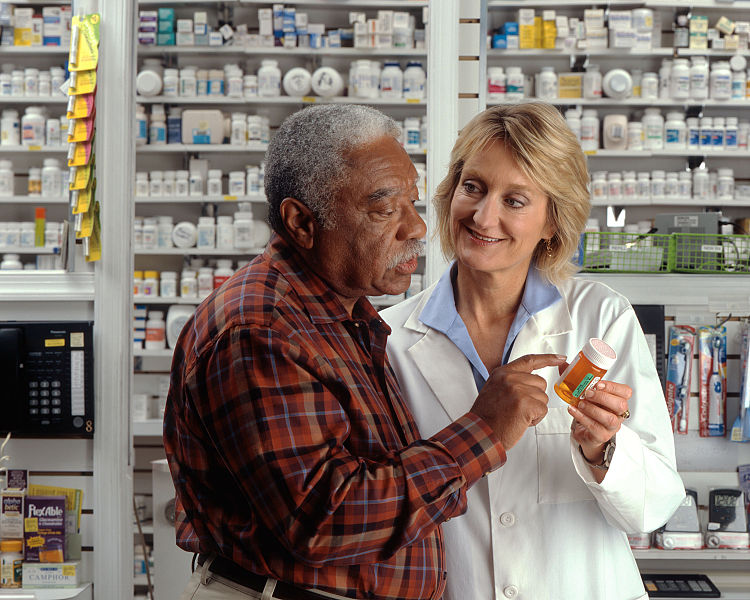Last Update: 01/25/16

How safe are your loved ones at an in-store medical clinic manned by nurse practitioners or physician’s assistants?
You’ve probably seen the new kinds of convenient health care shops opening up around Florida: these are handy, modern-looking in-store medical clinics conveniently located inside stores like CVS Pharmacy, Walgreen’s, and WalMart.
CVS Pharmacy calls its in-store clinics “Minute Clinics” which helps people get the idea that these new kinds of health care spots are fast and easy to use, which they may well be.
These new in-store clinics have lots to offer: they are easy to find, easy to use (you can just walk in), and they will accept your insurance coverage. If you don’t have something seriously wrong, maybe just a sniffle or the kids have come down with the bug that has been floating around school, then it makes sense that these new in-store clinics would be a tempting option to going for a traditional doctor’s office visit.
Biggest temptation? These new in-store clinics are cheaper than the traditional doctor’s office visit. Sounds like a great thing, right?
Maybe, maybe not.
One of the reasons that these new in-store clinics like CVS’s Minute Clinics can offer you what they do is because you’re not going to see a doctor there. No; if you go to a Minute Clinic, you will see “nurse practitioners and physician assistants who utilize nationally recognized protocols to provide treatment for common family illnesses, skin conditions and injuries, administer vaccinations, conduct physicals and wellness screenings, and offer monitoring for chronic conditions seven days a week without an appointment, including evenings and holidays.”
At Walgreen’s, the in-store medical clinics are called “HealthCare Clinics” and like their CVS competitors, they are offering nurse practitioners who provide all sorts of medical services for people, and most insurance is accepted (click the menu button and look for “Find Care”).
At WalMart, you get the same convenience with an in-store clinic but WalMart is careful to point out that these are independently owned and operated operations (this may be legally accurate for the other stores’ clinics, too, but WalMart is working hard to keep its distance). From the Wal-Mart site:
Each medical clinic located in a Walmart store is owned and operated by an independent company that is not affiliated with Walmart. Walmart does not employ any health-care professionals nor exercise any control over the provision of health-care services at the clinics.
What are the services provided at the WalMart in-store medical clinics? From their site: “All in-store clinics offer essential preventative and routine health services for common ailments as well as screening exams that can be performed without urgent or emergency care. Clinical services may include:”
- Allergy Care
- Common vaccinations
- Acne care
- Earache treatment
- Bladder infection treatment
- Flu treatment
- Blood pressure checks
- Insect bite and sting treatment
- Blood sugar testing
- Sinus infection treatment
- Camp / school physicals
- Upper respiratory infection care
- Cholesterol screening
- Wart removal
In-Store Clinics and Medication Errors
Here’s the thing: medication errors or drug mistakes are sometimes life-threatening. As discussed in our other posts on medication errors, the dangers of patients getting the wrong drug or the wrong dosage or the wrong combination of medications is not only real, but it’s happening in almost epidemic proportions in this country. And this is happening with trained medical doctors and physicians who are treating patients in the more traditional doctor’s offices and hospital rooms.
How safe from medication errors and drug mistakes are people who are visiting these nurse practitioners and physician’s assistants in these handy little in-store clinics?
It’s a scary thing to think about.
- Consider this: The National Patient Safety Foundation did a study where 42% of those who answered their poll on medication errors reported that they had been affected by a medical error, either personally or through a loved one, and 32% of these folk reported that this medical error had a permanent negative effect on the patient’s health.
- Meanwhile, back in 2008, an insurance company’s study into nurse practitioners found that 17.7% of malpractice claims filed against nurse practitioners back then were based upon drug mistakes and medication errors.
With the current chaos in the United States regarding Obamacare and the implimentation of the Affordable Care Act, it’s safe to assume that many people are going to be considering using these in-store health clinics for some of their health care needs. It’s cheaper, it’s faster, and the in-store medical clinics take almost all insurance coverage.
Will the number of people hurt and injured or even fatally harmed from drug mistakes and medication errors rise with this growth? It’s a good question.
What Should You Do?
A good piece of advice if you have been harmed by a medication error, is to speak with an experienced personal injury lawyer before you file a claim to learn about some of the issues that can arise with these claims, including the type of evidence needed to prove a claim and the type and amount of damages you can recover. Most personal injury lawyers, like Alan Sackrin, will offer a free initial consultation (over the phone or in person) to answer your questions.
Related:
- Medication Errors: Medicine Mistakes and Drug Errors Kill and Seriously Hurt Patients – A Shocking Secret Revealed
- Medication Errors and Drug Mistakes: Does Bad Communication Between Medical Professionals Hinder Patient Safety From Medication Errors and Drug Mistakes?
- Pharmacists and AMA: Doctors Don’t Like Drug Stores Calling Them to Check on Their Pain Prescriptions
_______________
 Do you have questions or comments? Then please feel free to send Alan an email or call him now at (954) 458-8655.
Do you have questions or comments? Then please feel free to send Alan an email or call him now at (954) 458-8655.
If you found this information helpful, please share this article and bookmark it for your future reference.
